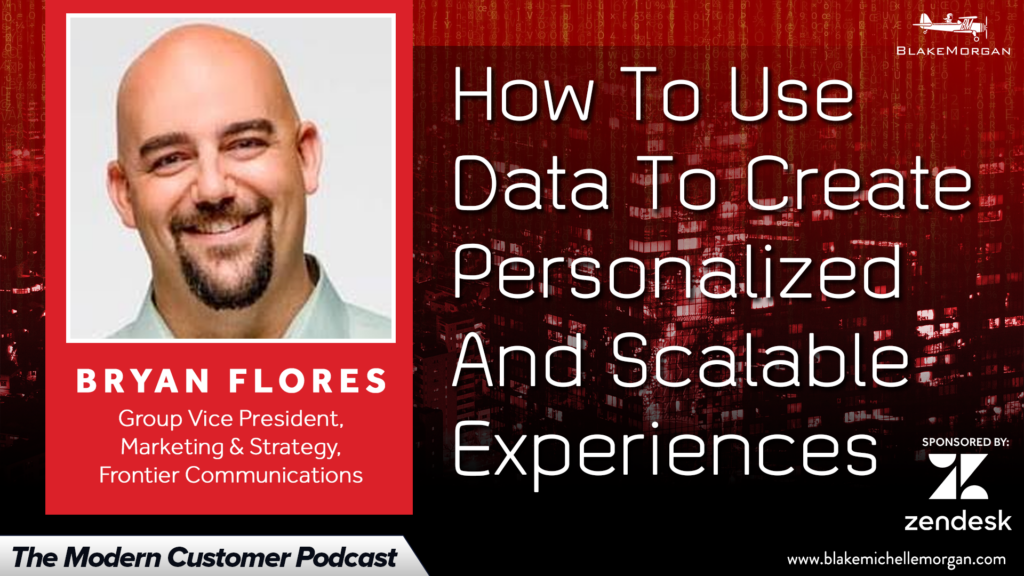With a wealth of customer data available, companies have more opportunities than ever before to deliver personalized customer experiences. But creating a unique experience for each person can take valuable time and resources. Successful companies leverage data to balance personalized experiences with scalable interactions that appeal to everyone.
Bryan Flores, Group Vice President, Marketing & Strategy at Frontier Communications, says companies must weigh the tradeoffs between individual experiences and universal truths. The aspects of the experience that apply to everyone are universal truths—things like nobody wants to pay more than they need to or the idea that the service always needs to work. Those universal truths should be table stakes and a built-in part of all experiences.
Individual experiences, on the other hand, can change depending on the type of customer. Each person has different needs and preferences, such as a Frontier Communications customer who prefers to stream video on their smartphone versus someone who uses wireless internet to homeschool their children on a laptop. Both customers want the same universal truths—dependable internet at a fair price—but how they receive the service and their interactions with the company will be different.
All experiences rely on data to be effective. Flores says his company looks at a huge array of data to truly understand its customers, both on a large scale and an individualized basis. Data shows how customers are using the internet, what devices they use to stream and watch TV and what they are looking for in their own experiences. Data shows consumer trends and individual preferences.
Data is also a powerful tool for employees to better know the customers they are serving. Flores says using technology to make employees’ lives easier can greatly impact the customer experience by giving employees the tools they need to provide excellent service. Data powers dashboards that make the most pertinent consumer information available to Frontier Communications representatives. When a customer calls, the employee can quickly see their transaction history and preferences to provide a unique experience, while also understanding the larger data for the entire customer base. The employee may know that the wider customer group in that geographic area uses the internet primarily at certain times a day and can combine that information with what they can see about the customer, such as that they work from home, to recommend the best internet to meet their needs.
Leveraging data allows companies to provide individual experiences at scale. Instead of having to sort through data individually or take time to get to know each customer, companies can rely on data to track customer interactions and predict what each customer wants and needs. Data can also pinpoint why customers do certain things to offer a clearer understanding of their lifestyles and habits.
Modern companies don’t have to choose between individualized experiences and scaled experiences. By leveraging data, they can have both. Taking advantage of data makes employees’ and customers’ lives easier and helps everyone get a customized experience, no matter how many customers there are.
This week’s podcast is sponsored by Zendesk.
Things are a little weird right now. The sudden change in the world—and the world of business—has created new challenges. A lot of companies are struggling to keep up with what matters most: their customers. Zendesk is here to help. They put together a six-month complimentary Remote Support Bundle. To learn more visit www.Zendesk.com/modern.
Blake Morgan is a customer experience futurist, keynote speaker and the author of the bestselling book The Customer Of The Future. Sign up for her weekly newsletter here.

